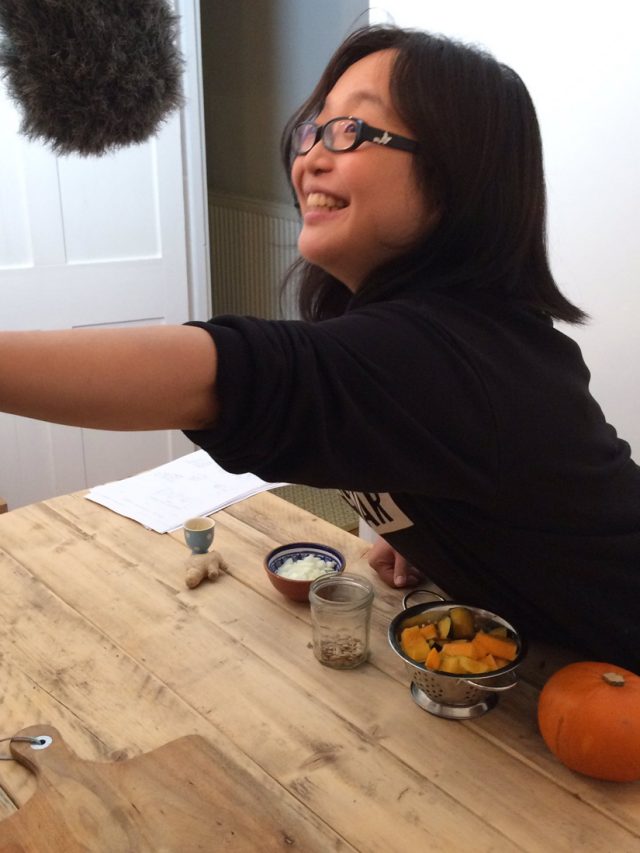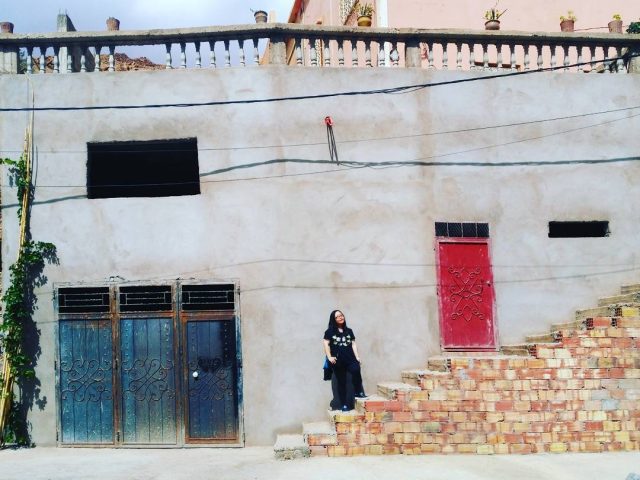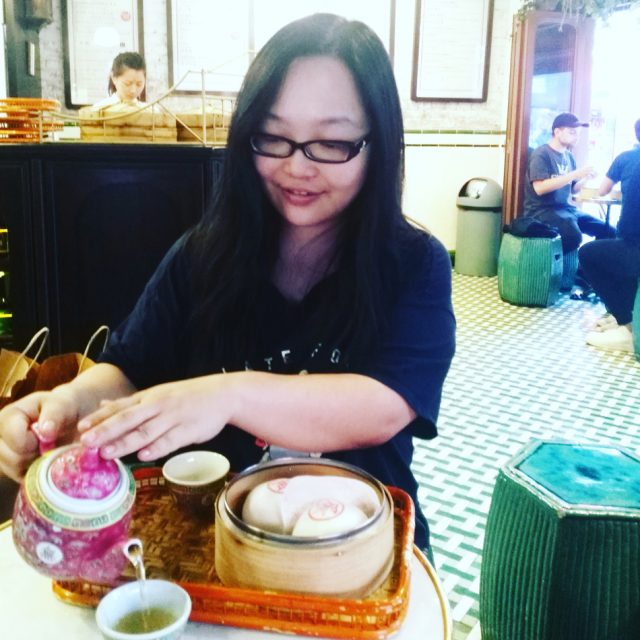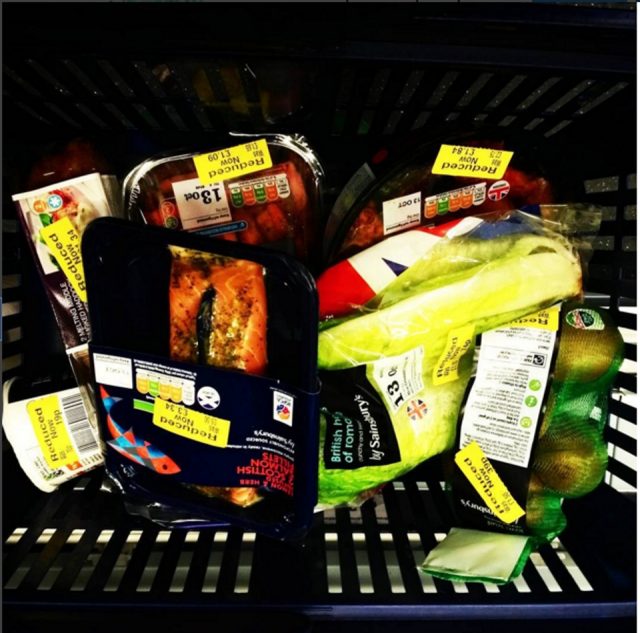
A project manager has cut her weekly food bill to just £5 by rummaging in bins and eating leftovers, cooked by total strangers.
But, far from scavenging for rotten scraps, her unwanted meals can even include gourmet restaurant dinners.
Josephine Liang, 25, who opted out of conventional grocery shopping a month ago, explained: “I want to use my money to travel and do more exciting things than just eating food.
“I’ve worked for charities and programmes focussed on food waste for a few years and had been doing this sort of thing on and off for about six months.
“Then I decided to go for it full time and practice what I preach.”
Determined to show that we are throwing away perfectly edible produce, Josephine swapped shopping for using apps to find food that restaurants, or people living nearby, planned to throw away.
 Josephine Liang (Collect/PA Real Life)
Josephine Liang (Collect/PA Real Life)
“I work for food campaigner Tristram Stuart, which meant I had a bit of experience with these apps, through my job,” she said. “I knew that there was loads of stuff out there and decided to take the plunge and do it full time.
“We throw away such a diverse range of food, in such great quantities and it has a huge impact on the environment. I want to use as many channels as possible and show that this is a sustainable way for anyone to live full-time, or even to do a few times a week.“
Turning to the app store on her phone, she found a food-sharing app called Olio, which allowed her to search through posts from people in the neighbouring area.
 Josephine wants to spend the money she saves on travelling (Collect/PA Real Life)
Josephine wants to spend the money she saves on travelling (Collect/PA Real Life)
Anyone can offer leftover food or even alcohol on the app, then people nearby can offer to collect it – usually for free, but sometimes for a small charitable donation.
Josephine explained: “I travel up to five kilometres to collect things. Any further doesn’t make sense, as there’s a point where the impact of the travel outweighs the environmental impact of the food being thrown out.”
Collecting meals has provided other fringe benefits for Josephine, who was spending between £20 and £30 a week on food, before she began her latest venture.
 Josephine Liang (Collect/PA Real Life)
Josephine Liang (Collect/PA Real Life)
“I’ve met loads of people as well, as I’ve had to go and pick things up,” she said. “It’s been great to get out and see London, too.
“I’d got into a routine of just going back and forth to work and not exploring anything, but now I’ve seen so many parts of London I’ve never been to before.”
After using the app, Josephine signed up to be an Olio volunteer, spending one day a week helping businesses like Pret A Manger redistribute unused food, who then allow her to keep 10 per cent.
“I do it on Mondays and it’s fantastic,” she said. “I’ve ended up with so much food and been able to feed my friends and half my building!”
Josephine also found an app called Too Good To Go, where restaurants like Yo Sushi! And Mister Lasagna, as well as local bakeries and eateries, redistribute unused food at the end of the day for a small fee.
She added: “For just a few pounds, you can get really huge portions of delicious, restaurant quality food.
“I think the best thing I got was a meat pie from a shop near my house. It was delicious. I’ve had so much great sushi and some really lovely pasta, which I’m always terrible at cooking.
“I’ve had some really tasty authentic meals for almost nothing.”
The enterprising young woman has even invited her friends over for “free food parties.”
 Josephine Liang (Collect/PA Real Life)
Josephine Liang (Collect/PA Real Life)
“You end up with huge portions and I’ve thrown too good to waste parties to feed friends, with all the food I pick up and some alcohol I found on Olio,” she laughed
As well as using apps, Josephine – who plans to write informative essays about people and craftsmen who have developed recipes from food waste when she travels – has also used more traditional methods to track down leftover food.
“My friend and I started to investigate some places to bin rummage in London,” she said. “Loads of food shops have the food on their shelves one minute. Then, when they close up, everything goes in the bin, because they have to sell fresh food the next day. It’s still perfectly edible and it’s such a shame it goes to waste.
“Some places have started mixing all the food together, so people can’t use it, but I think that’s such a shame.
“I realise people might not like the idea of it being in the bin, but we only take food that is clean and ok to eat. Most of the stuff hasn’t been there very long and is perfectly fine.”
Josephine’s “bin booty” has included fruit, vegetables and bread, which she will take home, cook and keep for a few days, or freeze, to eat later in the week.
 Josephine Liang in Morroco (Collect/PA Real Life)
Josephine Liang in Morroco (Collect/PA Real Life)
“I also go to supermarkets and look for yellow-stickered reduced food – again, it’s easy to cook it and freeze it,” she added.
Now she plans to maintain her new way of putting food on the table for as long as possible.
She said: “It makes me much more adventurous. I’ve never liked meat pies, but the one I ate, through Olio, was delicious.
“It’s really broadened my horizons and opened my eyes to British food, too. Despite having lived in the UK for a few years, I grew up in Hong Kong and had always stuck to Asian food, until now.
“I really can’t recommend doing this enough. So many of my friends have heard about it and said things like, ‘Why are we spending so much money in restaurants?’
“I really think it’s something that everyone can incorporate into their daily routine. With a little bit of time and creative thinking, you can reuse so much and help to reduce our food waste.”
 Josephine Liang (Collect/PA Real Life)
Josephine Liang (Collect/PA Real Life)
For more information about Josephine’s experiment, follow her on instagram @free_tasting.



Why are you making commenting on The Herald only available to subscribers?
It should have been a safe space for informed debate, somewhere for readers to discuss issues around the biggest stories of the day, but all too often the below the line comments on most websites have become bogged down by off-topic discussions and abuse.
heraldscotland.com is tackling this problem by allowing only subscribers to comment.
We are doing this to improve the experience for our loyal readers and we believe it will reduce the ability of trolls and troublemakers, who occasionally find their way onto our site, to abuse our journalists and readers. We also hope it will help the comments section fulfil its promise as a part of Scotland's conversation with itself.
We are lucky at The Herald. We are read by an informed, educated readership who can add their knowledge and insights to our stories.
That is invaluable.
We are making the subscriber-only change to support our valued readers, who tell us they don't want the site cluttered up with irrelevant comments, untruths and abuse.
In the past, the journalist’s job was to collect and distribute information to the audience. Technology means that readers can shape a discussion. We look forward to hearing from you on heraldscotland.com
Comments & Moderation
Readers’ comments: You are personally liable for the content of any comments you upload to this website, so please act responsibly. We do not pre-moderate or monitor readers’ comments appearing on our websites, but we do post-moderate in response to complaints we receive or otherwise when a potential problem comes to our attention. You can make a complaint by using the ‘report this post’ link . We may then apply our discretion under the user terms to amend or delete comments.
Post moderation is undertaken full-time 9am-6pm on weekdays, and on a part-time basis outwith those hours.
Read the rules hereLast Updated:
Report this comment Cancel